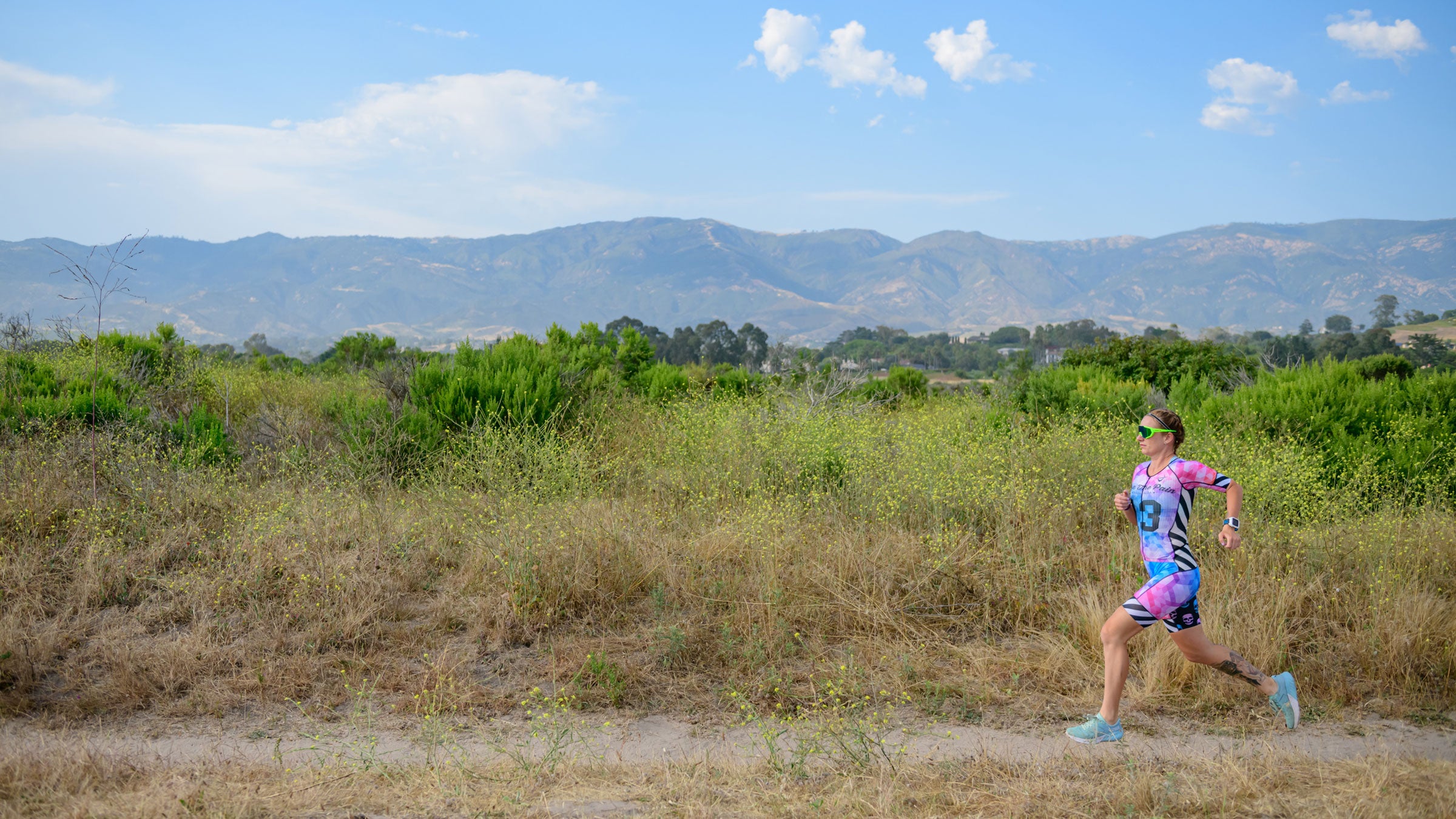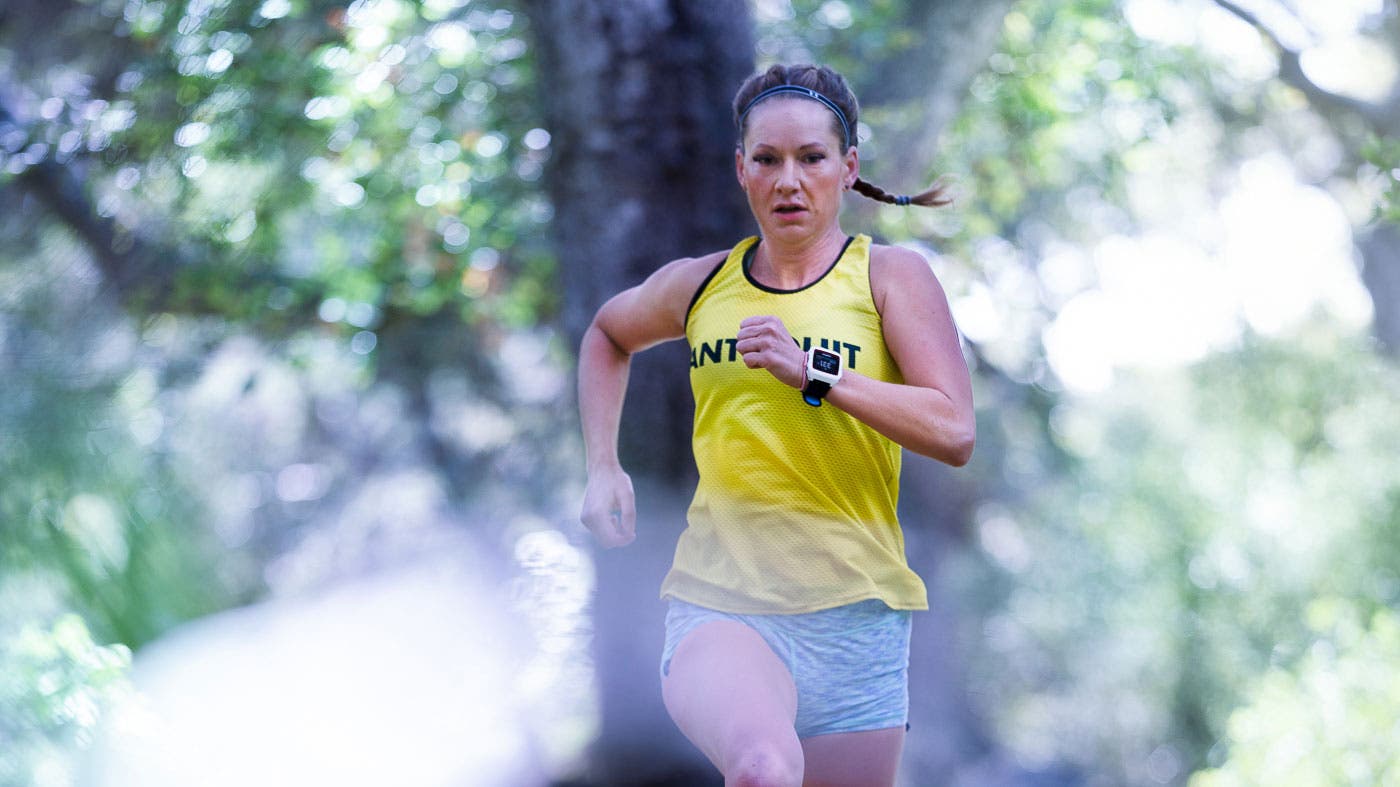#Trispo: From Eating Disorder to Ironman

When 16-year-old Patricia Neubauer took up running, she set her sights high. She went to her local running store in her hometown of Potsdam, Germany, walked right up to the owner, and asked for help finding a coach.
The owner, German track star and Olympic medalist Ulrike Bruns, replied with a smile. “You got one,” she said. “Let’s get to work.”
“She then took me under her wing and made me the best 800-meter runner I could possibly be,” recalled Neubauer. “We’d train twice a day, sometimes three times a day, seven days a week. I loved it.”
But becoming an elite runner came with intense pressure–not only to act the part, but to look the part. At competitions, she noticed the thin bodies of the runners in her heat. If she wanted to be faster than everyone, she reasoned, she would also have to be thinner. “My goal was to win international championships, so I took my own diet to the extreme.” The young runner began to starve herself to drop weight. At her lowest point, her five foot, seven inch frame carried less than 100 pounds.
“I lost my period for years and was ill all the time,” said Neubauer. Still, she pushed through, believing her habits were normal and even necessary for an elite runner. One day, at age 21, such an illness landed her in the local hospital, where doctors discovered her spleen was about to rupture. Her liver had almost doubled in size to that of a soccer ball. If she wanted to stay alive, she would not only have to undergo treatment for disordered eating, but give up competitive sport.
“My own body enforced a hard stop,” Neubauer said. “It really put me in a dark spot.”
Recovery forced Neubauer to take a hard look at her life and her goals. She loved being a competitive athlete, and wanted badly to get back to it. But she also knew she had to find a new, healthier relationship with sport. The opportunity came when she moved to Santa Barbara, California on a work visa.
“Right away, I bought my very first road bike and started riding my bike a lot. I rode my bike almost everywhere, and loved it.” The coastal community also provided ample opportunity for Neubauer to rediscover her love of swimming, which she had enjoyed as a child in Germany.
“I saw that my new life in Santa Barbara would be a perfect opportunity to start a new sport,” says Neubauer. She signed up for her first race, Ironman 70.3 Santa Rosa, and began working with a coach. In her first outing as a triathlete, she took fourth place overall. More importantly, she found a competitive outlet that allowed her to celebrate her recovery.

Neubauer, now 36, says multisport allows her to have a healthy relationship with her body. Now, instead of comparing herself to the body types of others, she is able to focus on what is best for her own body: “Triathlon is a sport in which lots of strength is used, compared to only running. If I would start starving again, I would not be strong enough on the bike or in the water and be super weak starting my run. This mentality helps me to not start this vicious cycle again.”
Her success at triathlon also gives her a platform to help others. “I want to tell my story to young and adult athletes. It’s absolutely not worth it to compare yourself to a standard. Starving doesn’t get you anywhere. It’s a slippery slope, and not sustainable.”
Since that first triathlon race four years ago, Neubauer has steadily climbed the ranks, often placing on the podium for her age group. Her goal is to make Team USA at the next USA Triathlon Age Group Nationals event. “It was not an easy path and I struggled tremendously,” Neubauer said of her recovery, “but I’m proud that I came out of this alive.”